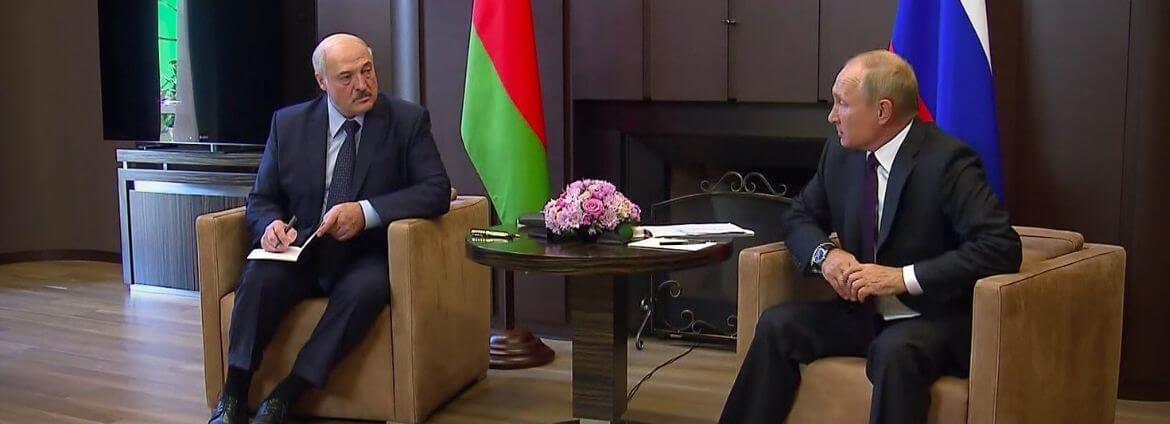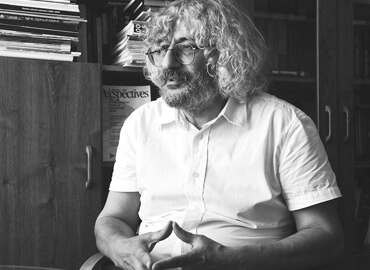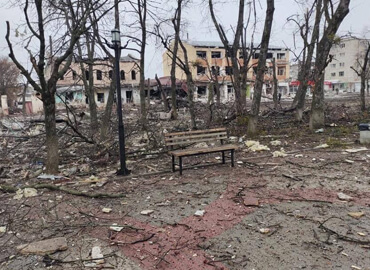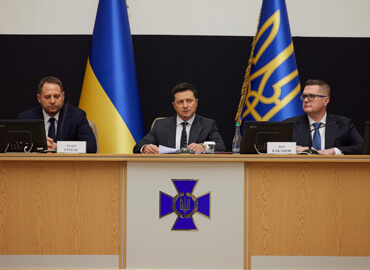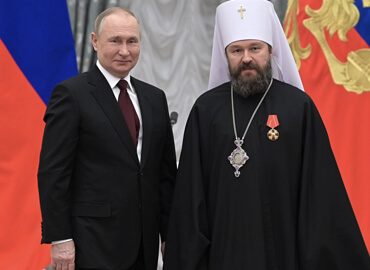Alexander Lukashenko is continuing his performances of the Meyerhold is a Japanese spy variety. One can only guess how the Belarusian bureaucracy views these actions. Lukashenko does not trust anyone and is aggressively isolated. Within the power structure fears about the future of the economy and their prospects cannot but arise. Because of this, expectations are continuously drifting – that Putin must eventually stop this and influence Lukashenko. Everyone in Minsk is convinced that Biden and Putin discussed the situation in Belarus, and they now expect Xi Jinping to lay out his position to Putin. Supposedly, both Moscow and Beijing, which have transparent economic interests in Belarus, are not interested in a further absurd escalation of the conflict between Lukashenko and the rest of the world. The protests ended in February, and it is now July. Repressions are devoid of any political meaning, and everyone is waiting for a smooth normalization while Lukashenko continues to act solely out of pathological revenge, sacrificing the loyal part of the Belarusian society.
On July 2, Lukashenko announced that another plot had been uncovered. Last time it was an alleged U.S. driven conspiracy to assassinate Lukashenko and his son. Now he is staging the existence of a «military underground» which, with the support of Ukraine, Lithuania, Germany, and Poland, allegedly sought to undermine the main Russian military facility in Belarus. In Moscow, these theatrical performances are well understood as Lukashenko wanting to run a step ahead of Putin, demonstrating a conflict with the West along Putin’s model but to an even greater degree than in Russia. The Kremlin continues to smash the opposition in Russia, ascribing to it «extremism» and «terrorism,» and Lukashenko offers Putin and his military circle vivid pictures of the Kremlin’s ideas regarding «destructive forces led by the U.S. seeking to undermine their foundation…» Some in Moscow are convinced that Lukashenko is manipulating Putin while others believe that Lukashenko is playing along up to Patrushev and Naryshkin; that is, the part of the Kremlin establishment that is driving Putin himself into deeper conflict with the West. This is the opinion of those who want to see a certain difference in the positions of Putin’s power circle and Putin himself. Still others believe that all this is fiction, and Naryshkin, like Bortnikov, is acting on the direct orders of Putin and is providing specific organizational support to Lukashenko’s special services in the cases of Feduta and Protasevich in addition to the events surrounding the explosion in Vileika. Indeed, Naryshkin recently visited Belarus, then made a statement that Moscow and Minsk were jointly opposing the West on matters of intelligence.
Perhaps now it seems to Alexander Lukashenko that this is an excellent idea – to throw a symmetrical «exposure» of the organizing of the explosion in Vileika at Putin, who is now having to deal with the consequences of the exposing of Russian GRU officers’ 2014 sabotage in the Czech Republic. It is also possible that this plan was previously agreed to with the SVR (Foreign Intelligence Service) and the FSB (Federal Security Service).
In European capitals, there is every reason to believe that Lukashenko’s ominous staging is fully approved by the Kremlin. The Kremlin is now in a new phase of conflict with Ukraine due to Zelensky’s active diplomacy, and the closure of the Belarusian border with Ukraine is beneficial for the Kremlin. The Kremlin is developing a new line of pressure on Germany and Lukashenko is proactively promoting the idea of terrorists operating from Germany to the Kremlin. Lukashenko is tossing the ball into Putin’s court, and he is running with it, as previous events have shown. For example, Putin referred to a «conspiracy with the participation of the State Department» in a telephone conversation with Biden following the arrest of Feduta and Zenkovich. It would not be surprising, therefore, if Putin referred to Germany in the Vileika bombing case.
Lukashenko and Putin have formed an «alliance of escalation.» The question arises where and at what point will this alliance cease production of increasingly eccentric plots outlining aggressive conflict with the West. Or will it ever stop? Belarusian leadership groups are tired of Lukashenko. The temperature of the conflict that he is looking to maintain is clearly higher than the psychological capabilities of this circle. Lukashenko is framing his plays about the «conspiracy of the West» in such a way that he comes off as not a «head of a western federal district,» but as one of Putin’s security officials – for example, Patrushev, Naryshkin or Bortniko. That is, as one of the active producers of ideological conflict with Europe and the U.S. Figuratively speaking, Lukashenko seeks to take his place not in the State Council, among governors, but in the Russian Security Council among hawks closest Putin hawks. In response, we hear that the Kremlin is not pushing Lukashenko to sign integration «road maps,» but instead is persistent in suggesting he visit Crimea. If this happens, there will be no stopping point at all in escalation. Moscow and Minsk will finally and for a long time find themselves in one box of continuous “geopolitical hysteria.” And this will devour all the progressive and modern forces of innovation remaining in both countries within two to three years. Under the new conditions, not only representatives of the IT industry but also the top management of national banks and large economic state institutions will not be able to live and operate. Nobody will be able to operate except for very cynical people who get rich not through modernization, but through the degradation of their societies. They are fueled not by the improvement of their countries, but by the radicalization of the conflict. The consequences of this radicalization will have implications for the next two generations in Central and Eastern Europe. Nobody will benefit from it in Belarus and in Russia and it will only lead to ruin.
Alexander Morozov,
iSANS analyst, political scientist, philosopher, lecturer at Charles University, Prague.
Материал доступен на русском языке: Лукашенко продает Путину «заговор Запада»



